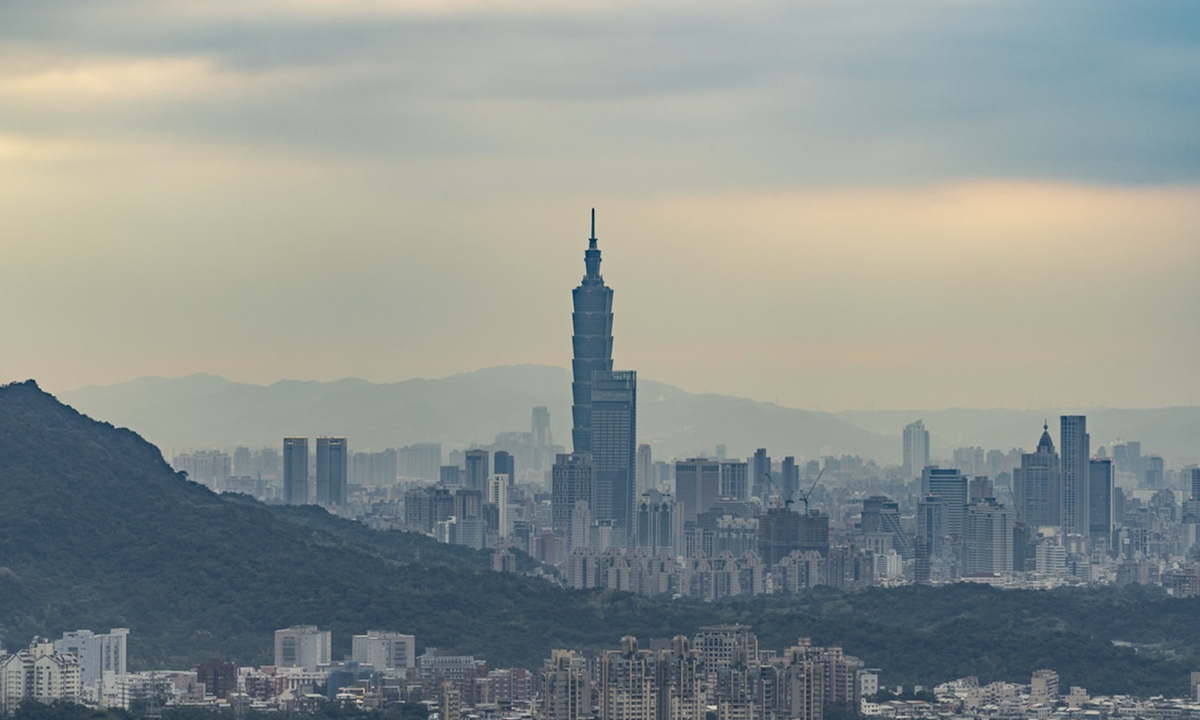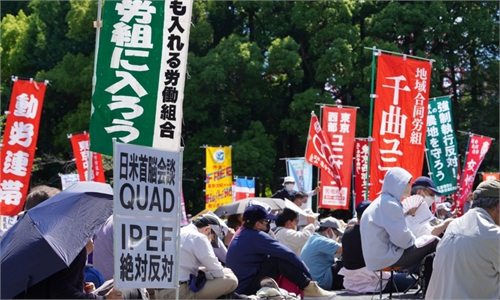
The island of Taiwan Photo: Unsplash
A parliamentary delegation led by former Japanese defense ministers arrived in China's Taiwan island on Wednesday to discuss "security concerns" across the Taiwan Straits. The move is seen by experts as a pretext to hype conflict, with the true intention of expanding Japan's military power.Former Japanese defense ministers Shigeru Ishiba and Yasukazu Hamada led a parliamentary delegation of four from Japan's National Diet to China's Taiwan, and arrived at Songshan Airport in Taipei on Wednesday morning. During the trip, they are scheduled to hold talks with Democratic Progressive Party (DPP) authorities, local media reported.
The purpose of the visit is to "discuss extensively the regional security situation in Taiwan, especially in the context of the Russia-Ukraine military conflict," local media reported.
The Japanese lawmakers will meet with regional leader Tsai Ing-wen and deputy regional leader Lai Tsing-te, among other officials, local media said.
The visit was announced on July 12 after Lai attended late Japanese prime minister Shinzo Abe's funeral in a "private capacity." Officials with the island's "external affairs department" noted that it was particularly meaningful for Japanese Diet members to visit the island after Abe's passing, which means that support for Taiwan "will not dissipate."
Abe's passing was felt most keenly by the secessionist Taiwan authorities, Liu Jiangyong, vice dean of the Institute of Modern International Relations at Tsinghua University, told the Global Times on Wednesday, noting that Abe and his brother Nobuo Kishi, Japan's current minister of defense, long played crucial roles in collusion between the island and Japan.
After Abe's death, the DPP authority urgently needs a new candidate to fill this position and build new channels with Tokyo, and Kishi is believed to be the best option. With Kishi holding a key position in the Japanese cabinet, the two former defense ministers' visit to the island became important pawns to convey voices for both sides, Liu said.
In its annual defense white paper published last week, Japan had significantly wider coverage of the Taiwan question from the previous year.. The white paper, for the first time, included a hypothetical "invasion" of Taiwan by the Chinese mainland, Asian News reported earlier. "If an emergency were to occur in Taiwan… the crisis would also inevitably affect Japan, which is why it is said, 'An emergency for Taiwan is also an emergency for Japan'," the report said.
"Japan has long been obsessed with its colonial rule in the island of Taiwan. What's more, the Taiwan question involves the Diaoyu Islands disputes," Liu said. "Japan is not merely following the US on the issue, but also has its own considerations. This is also why it does not want to see China and the US engage in dialogue, and it does not want to see the US continue to maintain a vague policy on the Taiwan question," Liu remarked.
Wednesday's high-profile visit also comes ahead of three more defense-related papers to be signed by the Japanese government by the end of this year.
It could be seen as another attempt to hype the rhetoric of "today's Ukraine, tomorrow's Taiwan" and use the "China threat" theory as a pretext to achieve Tokyo's true purpose - revising its postwar pacifist constitution, which could allow it to get rid of the constraints, participate in NATO, and seek to develop into a military power, Da Zhigang, director of the Institute of Northeast Asian Studies at Heilongjiang Provincial Academy of Social Sciences, told the Global Times.
A total of seven Japanese lawmakers had originally planned to join the trip, but three of them tested positive for COVID-19 and were therefore unable to travel.
The delegation is also scheduled to pay their respects at the grave of the "Godfather of Taiwan secessionism" Lee Teng-hui, also the former leader of the island.

